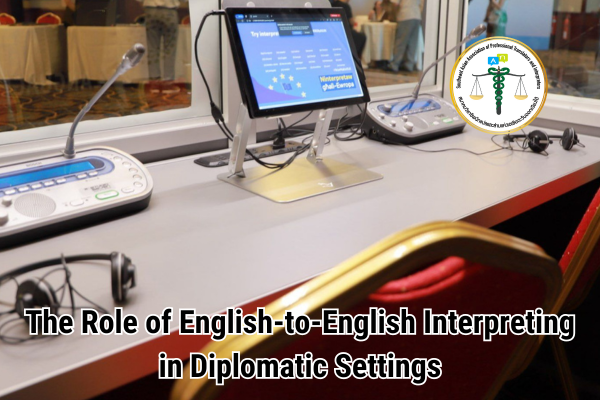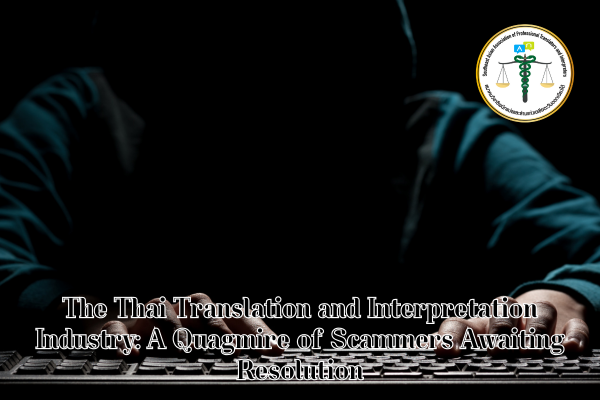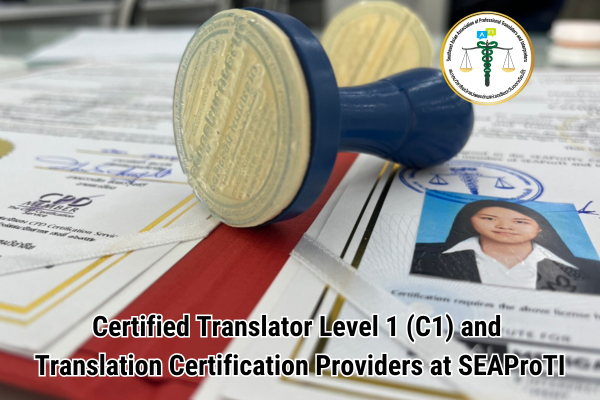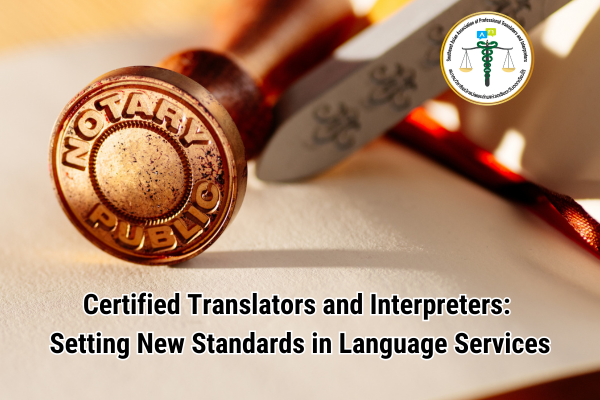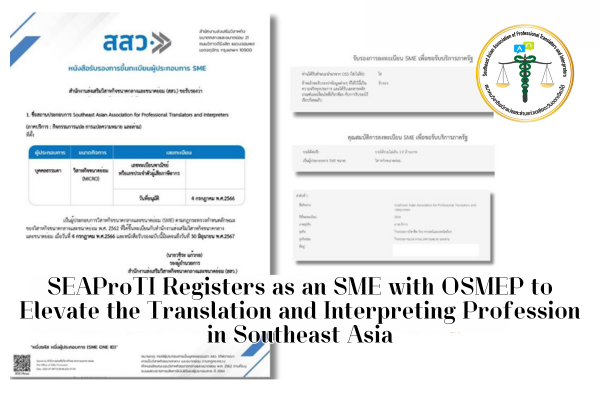The Role of English-to-English Interpreting in Diplomatic Settings
15 February 2025, Bangkok – In a recent diplomatic event, two interpreters were present in the Oval Office to facilitate communication between Indian journalists and the U.S. President, even though the questions were posed in English. This decision has sparked discussions about the necessity and purpose of English-to-English interpreting. While politics may play a role in such decisions, there are several linguistic and practical reasons that justify the presence of interpreters in high-profile diplomatic interactions.
Linguistic Considerations
One of the primary reasons for employing interpreters in English-to-English communication is accent and comprehensibility. Indian English, like other varieties of English, has distinct phonetic, lexical, and syntactic characteristics. Not all listeners, especially those unfamiliar with certain regional accents, may immediately grasp the speaker’s intended meaning. Interpreters help bridge this gap by ensuring clarity and reducing the risk of miscommunication.
Additionally, speech pace and diction can affect comprehension. Journalists often speak quickly or use idiomatic expressions that may be unfamiliar to the listener. An interpreter can reformulate these questions to enhance clarity, making it easier for the President to respond accurately and promptly.
Contextual and Diplomatic Factors
In international diplomacy, subtle nuances in language can have significant implications. Certain cultural or political references may require slight adjustments to align with the President’s frame of reference. An interpreter can rephrase questions to ensure that they are understood in the intended diplomatic and political context.
Furthermore, diplomatic protocol often dictates the inclusion of interpreters as a precautionary measure. Even when a shared language exists, variations in pronunciation, phrasing, or terminology could lead to misunderstandings. The presence of interpreters serves as an added layer of assurance that all parties fully grasp the conversation.
Technical and Logistical Considerations
The acoustics of large press conferences, particularly in formal settings like the Oval Office, can sometimes hinder clear communication. Background noise, microphone placement, or variations in vocal projection can make it challenging to hear every word clearly. Having interpreters present ensures that questions are correctly conveyed to the President without misinterpretation.
Additionally, ensuring consistency in communication strategies is crucial. If interpreters are used for English-speaking journalists from other regions, such as Australia or the United Kingdom, applying the same approach for Indian journalists would maintain fairness and uniformity in the diplomatic process.
Conclusion
While the use of interpreters for English-to-English communication may seem unusual at first glance, there are valid linguistic, diplomatic, and logistical reasons for such a decision. Ensuring clarity, preventing misunderstandings, and maintaining consistency in international diplomacy are key factors in this practice. Ultimately, the presence of interpreters underscores the importance of effective communication in high-stakes political environments, where every word carries significant weight.
SEAProTI’s certified translators, translation certification providers, and certified interpreters:
The Southeast Asian Association of Professional Translators and Interpreters (SEAProTI) has officially announced the criteria and qualifications for individuals to register as “Certified Translators,” “Translation Certification Providers,” and “Certified Interpreters” under the association’s regulations. These guidelines are detailed in Sections 9 and 10 of the Royal Thai Government Gazette, issued by the Secretariat of the Cabinet under the Office of the Prime Minister of the Kingdom of Thailand, dated July 25, 2024, Volume 141, Part 66 Ng, Page 100.
To read the full publication, visit: the Royal Thai Government Gazette
บทบาทของล่ามคู่ภาษาอังกฤษเป็นภาษาอังกฤษในงานทางการทูต แนวทางในการประกอบวิชาชีพ จรรยาบรรณวิชาชีพ
15 กุมภาพันธ์ 2568, กรุงเทพมหานคร – ในเหตุการณ์ทางการทูตล่าสุด มีการใช้ล่ามสองคนในห้องทำงานในห้องทำงานรูปไข่ (Oval Office) เพื่ออำนวยความสะดวกในการสื่อสารระหว่างนักข่าวชาวอินเดียและประธานาธิบดีสหรัฐฯ แม้ว่าคำถามจะถูกถามเป็นภาษาอังกฤษก็ตาม การตัดสินใจดังกล่าวทำให้เกิดการถกเถียงเกี่ยวกับความจำเป็นและวัตถุประสงค์ของการแปลภาษาอังกฤษเป็นภาษาอังกฤษ แม้ว่าการเมืองอาจมีบทบาทในเรื่องนี้ แต่ก็มีเหตุผลทางด้านภาษาและปฏิบัติที่สนับสนุนการมีล่ามในการสื่อสารระดับสูงทางการทูต
เหตุผลทางด้านภาษา
หนึ่งในเหตุผลหลักของการใช้ล่ามในการสื่อสารภาษาอังกฤษเป็นภาษาอังกฤษคือสำเนียงและความเข้าใจ ภาษาอังกฤษแบบอินเดีย เช่นเดียวกับสำเนียงอื่น ๆ ของภาษาอังกฤษ มีลักษณะทางเสียง ศัพท์ และไวยากรณ์ที่เป็นเอกลักษณ์ ไม่ใช่ทุกคน โดยเฉพาะผู้ที่ไม่คุ้นเคยกับสำเนียงภูมิภาค อาจเข้าใจความหมายที่ผู้พูดต้องการสื่อได้ทันที ล่ามช่วยเชื่อมช่องว่างนี้โดยทำให้แน่ใจว่ามีความชัดเจนและลดความเสี่ยงของความเข้าใจผิด
นอกจากนี้ อัตราความเร็วในการพูดและการออกเสียงอาจส่งผลต่อความเข้าใจ นักข่าวมักพูดเร็วหรือใช้สำนวนที่อาจไม่คุ้นเคยกับผู้ฟัง ล่ามสามารถปรับแต่งคำถามให้ชัดเจนขึ้นเพื่อช่วยให้ประธานาธิบดีตอบได้อย่างแม่นยำและรวดเร็ว
บริบทและปัจจัยทางการทูต
ในเวทีการทูตระหว่างประเทศ รายละเอียดปลีกย่อยของภาษาสามารถมีผลกระทบสำคัญ การอ้างอิงทางวัฒนธรรมหรือการเมืองบางอย่างอาจต้องได้รับการปรับเล็กน้อยเพื่อให้ตรงกับกรอบการรับรู้ของประธานาธิบดี ล่ามสามารถถ่ายทอดคำถามใหม่เพื่อให้แน่ใจว่าเข้าใจในบริบททางการเมืองและการทูตที่ถูกต้อง
นอกจากนี้ มารยาททางการทูตมักกำหนดให้มีล่ามเพื่อเป็นมาตรการป้องกัน แม้ว่าทั้งสองฝ่ายจะพูดภาษาเดียวกัน แต่ความแตกต่างในการออกเสียง โครงสร้างประโยค หรือคำศัพท์อาจทำให้เกิดความเข้าใจผิดได้ การมีล่ามจึงเป็นการรับรองเพิ่มเติมว่าทุกฝ่ายเข้าใจการสนทนาอย่างครบถ้วน
ปัจจัยทางเทคนิคและโลจิสติกส์
ระบบเสียงในการแถลงข่าวขนาดใหญ่ โดยเฉพาะในสถานที่อย่างห้องทำงานรูปไข่ อาจส่งผลต่อความชัดเจนของการสื่อสาร เสียงรบกวน ไมโครโฟน หรือระดับเสียงของผู้พูดอาจทำให้ยากต่อการได้ยินทุกคำอย่างชัดเจน การมีล่ามช่วยให้มั่นใจว่าคำถามถูกส่งต่อถึงประธานาธิบดีอย่างถูกต้องโดยไม่มีการตีความผิด
นอกจากนี้ การรักษาความสม่ำเสมอของกลยุทธ์การสื่อสารเป็นสิ่งสำคัญ หากใช้ล่ามสำหรับนักข่าวที่พูดภาษาอังกฤษจากภูมิภาคอื่น เช่น ออสเตรเลียหรือสหราชอาณาจักร การใช้แนวทางเดียวกันสำหรับนักข่าวชาวอินเดียก็จะช่วยรักษาความเป็นธรรมและความเป็นเอกภาพในการดำเนินการทางการทูต
สรุป
แม้ว่าการใช้ล่ามในการสื่อสารภาษาอังกฤษเป็นภาษาอังกฤษอาจดูแปลกในตอนแรก แต่ก็มีเหตุผลทางด้านภาษา การทูต และโลจิสติกส์ที่สนับสนุนแนวทางนี้ การรับรองความชัดเจน การป้องกันความเข้าใจผิด และการรักษาความสม่ำเสมอในการสื่อสารระหว่างประเทศเป็นปัจจัยหลักที่ทำให้การปฏิบัตินี้มีความสำคัญ ท้ายที่สุดแล้ว การมีล่ามเป็นการเน้นย้ำถึงความสำคัญของการสื่อสารที่มีประสิทธิภาพในสภาพแวดล้อมทางการเมืองที่มีเดิมพันสูง ซึ่งทุกคำพูดมีความหมายที่สำคัญ
เกี่ยวกับนักแปลรับรอง ผู้รับรองการแปล และล่ามรับรองของสมาคมวิชาชีพนักแปลและล่ามแห่งเอเชียตะวันออกเฉียงใต้
สมาคมวิชาชีพนักแปลและล่ามแห่งเอเชียตะวันออกเฉียงใต้ (SEAProTI) ได้ประกาศหลักเกณฑ์และคุณสมบัติผู้ที่ขึ้นทะเบียนเป็น “นักแปลรับรอง (Certified Translators) และผู้รับรองการแปล (Translation Certification Providers) และล่ามรับรอง (Certified Interpreters)” ของสมาคม หมวดที่ 9 และหมวดที่ 10 ในราชกิจจานุเบกษา ของสำนักเลขาธิการคณะรัฐมนตรี ในสำนักนายกรัฐมนตรี แห่งราชอาณาจักรไทย ลงวันที่ 25 ก.ค. 2567 เล่มที่ 141 ตอนที่ 66 ง หน้า 100 อ่านฉบับเต็มได้ที่: นักแปลรับรอง ผู้รับรองการแปล และล่ามรับรอง


